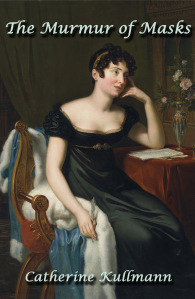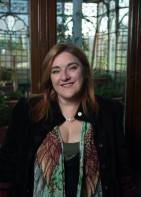Pam Lecky's Blog, page 34
August 6, 2016
A Conversation with Author Nora Fountain
This evening in the Library we have Nora Fountain, who has dropped in to say hello and to share some insights into her life as an author.
Hello, I’m a trad- and self-published author of contemporary and historical romances plus one crime story ‘Chain of Evil’, which also has a romantic thread.
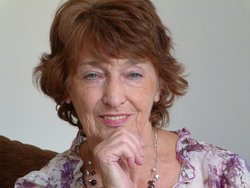 I read from an early age, piecing words and text together in a wonderful book of nursery rhymes. This also introduced the rhythms of poetry. We did a lot of that at primary school and somehow poetry stays in the mind in a way that prose cannot. Later I was introduced to French romantic poetry and still love bits of Lamartine, such as Le Lac. I love the idea of feelings so powerful that they could be imprinted on the very rocks around the lake where they loved. I can also quote just four lines by the Spanish poet, Federico García Lorca. Just four – about the gypsies he loved, riding through an olive grove in the moonlight. Colourful stuff.
I read from an early age, piecing words and text together in a wonderful book of nursery rhymes. This also introduced the rhythms of poetry. We did a lot of that at primary school and somehow poetry stays in the mind in a way that prose cannot. Later I was introduced to French romantic poetry and still love bits of Lamartine, such as Le Lac. I love the idea of feelings so powerful that they could be imprinted on the very rocks around the lake where they loved. I can also quote just four lines by the Spanish poet, Federico García Lorca. Just four – about the gypsies he loved, riding through an olive grove in the moonlight. Colourful stuff.
I still read, of course. What writer doesn’t? I’m not a fast reader, however, and time is scarce. Since that wretched accident two years ago my weeks have been punctuated by trips to hospital. I always read when I go to bed, paper or ebooks. I like the feel of a physical book but my Kindle is wonderful to read in bed. It never folds up and loses my place as a physical book can do. I also like the enlarged print facility for tired eyes. I’m currently reading an Anna Jacobs and a rediscovered Edna O’Brien. I loved Edna’s earlier books. I’m finding this one a trifle difficult to get into.
As I said above, I’m both trad and self-published. I was delighted when Hale took my first romance under a pseudonym – Lorna McKenzie, Lorna because I loved Lorna Doone which I read at the age of ten and McKenzie because it used to be my name. Hale went on to take four more romances before closing down the line because ‘no-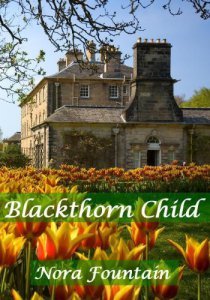 one wanted to read romance any more’. Really? Really? As John Torode would say. After Hale there came the endless stream of rejections. I waited up to eleven months in some cases for their rejection letter. I decided that, rather than bat it back and forth (and we won’t look at it if it’s been sent elsewhere) to put ‘Blackthorn Child’, a historical set in the years 1848 to 1946, on Amazon Kindle. It soared up the lists, reaching top spot on one occasion and has attracted some wonderful reviews. My other historical ‘Love Thine Enemy’ has also attracted some great reviews. It’s set against the backcloth of the Second World War, one of my favourite periods.
one wanted to read romance any more’. Really? Really? As John Torode would say. After Hale there came the endless stream of rejections. I waited up to eleven months in some cases for their rejection letter. I decided that, rather than bat it back and forth (and we won’t look at it if it’s been sent elsewhere) to put ‘Blackthorn Child’, a historical set in the years 1848 to 1946, on Amazon Kindle. It soared up the lists, reaching top spot on one occasion and has attracted some wonderful reviews. My other historical ‘Love Thine Enemy’ has also attracted some great reviews. It’s set against the backcloth of the Second World War, one of my favourite periods.
I was undoubtedly influenced by the fact that the house was full of books when I was growing up. Dad had a bookcase full of Penguin classics and a whole set of red, gold-tooled Dickens novels. He read a lot of serious political and historical stuff, too. Mum ‘liked a nice love story’.
I’ve lived in various parts of the UK but I think Dorset’s the place my characters tend to come back to. Any trip abroad is liable to become the setting for a new book. I still have to write my Czech and Sicilian novels!
What do I find the most difficult aspect of writing? Beginning at the right place, so I sometimes make several false starts. Once I’m in, the only difficulty is finding the time and having the strength of mind to turn off the telly. I do so love quiz programmes – Eggheads, Mastermind, even Pointless. You learn so many strange facts but it’s all grist to the mill. I met the son-in-law of our own Mastermind winner at an RNA Christmas party and he very kindly suggested some reading on the fourteenth century which I’m finding most useful for one of my current WIPs.
I prefer to write early in the day but it takes me so long to get going these days that that hardly ever happens. I sometimes have a spurt of mental activity late in the evening so I go with the flow.
The best thing about being an author is having the freedom to indulge one’s thoughts and fantasies, and not be beholden to some boss. The flipside is the uncertainty of ideas continuing to flow, making a living from one’s efforts, maintaining a balance between being arrogant enough to think one can write and humble enough to take the knockbacks
I’m sure I don’t make the best use of social media. I can’t imagine anyone being that fascinated by my daily life. I mainly use Facebook but once on it, it’s so time-consuming. I have a dedicated author page. I tweet a bit (@norafount). I’m also on LinkedIn but that seems to have become a bit of a job site.
If I weren’t an author, I’d be wearing my other hat as a translator of French and Spanish. I also love painting, especially with oils. I love the fact that if you make a mistake it’s easy to cover up. It’s much more difficult with water colours.
If it was the last day and the earth was facing oblivion I don’t think I’d be reading. I’d be storing up the experience in case it wasn’t really happening and I could then write about it. If I had to read, it would be a bit of Lamartine.
I am currently working on two contemporary novels and a historical. I like multi-tasking.
I’ve mentioned Twitter, LinkedIn, Facebook. I also have an author website: norafountain.co.uk, where all my books are listed, with covers, photos, etc. My ebooks are extremely cheap, even the long historicals. Please take a look and even write a short review if you like what you read and feel so inclined.
Thank you if you do, and many thanks to Pam for this opportunity.
If you would like to know more about Nora and her work, please check out the links below:


July 31, 2016
A Conversation with Author Catherine Kullmann
Today in the Library I am delighted to host Irish historical fiction author Catherine Kullmann, who has dropped in to say hello and to share some insights into her life as an author.
You are very welcome, Catherine and congratulations on the publication this week of your book, The Murmur of Masks.
Hello and thank you for inviting me to the Library. I was born and brought up in Dublin. Following my marriage I moved to Germany where I lived for over twenty-five years. My husband and I returned to Ireland in 1999 and celebrat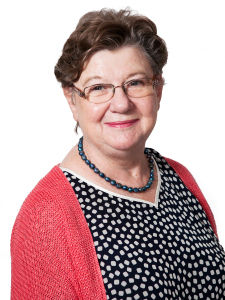 ed our ruby wedding in 2013. We have three adult sons and two grandchildren. I have worked in the Irish and New Zealand public services and in the private sector. I took early retirement some years ago and was finally able to follow my life-long dream of writing fiction
ed our ruby wedding in 2013. We have three adult sons and two grandchildren. I have worked in the Irish and New Zealand public services and in the private sector. I took early retirement some years ago and was finally able to follow my life-long dream of writing fiction
Did you read much as a child?
As a child I always had my nose in a book. I had tickets for the public library and the children’s section of the RDS library and visited both several times a week. The librarian of the public library allowed me join the adult library early as I had read everything in the children’s library.
Are you an avid reader now?
Yes. I have to read every day. I buy a lot of new books, but also love second-hand bookshops, book fairs and charity shops as you never know what you might find.
Do you prefer books in your own genre or are you happy to explore others?
I generally read fiction for pleasure and non-fiction for research. I love historical fiction and detective stories set in all periods, but also read nineteenth and twentieth century fiction, contemporary fiction, paranormal and fantasy.
Are you self-published or traditionally published?
Self-published.
Which genre do you write in and why?
According to traditional publishers, my books fall between two stools—historical romance and historical fiction. I describe them as ‘historical fiction for the heart and for the head’. They are set during the extended Regency period, an era that has always fascinated me. It started with Jane Austen, I suppose, but as I came to know more about the period, I realised it was the one which shaped both the United Kingdom which came into being with the Act of Union in 1800 and modern Europe through the Napoleonic wars and their aftermath. Although a time of revolution, reform and transition, it was still a rigid, patriarchal, class-ridden society. I enjoy the challenge of creating characters who behave authentically in their period while making their actions and decisions plausible and sympathetic to a modern reader.
Who has been the biggest influence on your writing?
I would have to start with my English teachers and the essays I wrote every week, then my professional training in drafting accurately and, as far as possible, elegantly. Novelists who influenced me include Jane Austen, Anthony Trollope, Georgette Heyer to whom all ‘regency writers’ owe so much, and Dorothy Sayers. In Gaudy Night, when her heroine is faced with writing a very tricky letter, she has her ask herself, “Why can’t I write a straightforward piece of English on a set subject?” This question makes her identify the real reason for her difficulties. Once she realises what the problem is, she is able to deal with it.
Has your country of origin/culture influenced your writing?
Yes. In many ways the Ireland I grew up in was more similar to Regency society than to modern twenty-first century society. Attitudes to sex and sexuality were very different. Contraception was illegal, as was divorce. Pre-marital sex was frowned upon and it was almost unheard of for an unmarried mother to keep her baby. It was not usual for married women to work outside the home and many employers, including the civil service, refused to continue a woman’s employment once she married.
At the time I moved to Germany, air-travel and international phone calls were very expensive and there was, of course, neither internet, Skype, Facebook, texting nor anything of that sort, so I know what it is like to be isolated in a new environment and dependent on letters to maintain relationships and friendships.
Some people have asked me why I don’t set my books in Ireland but it would be impossible to do that and ignore the political and social situation in Ireland at that time. That would result in a different, bleaker book that I don’t want to write.
What part of the writing process do you find most difficult? How do you overcome it?
Because my books are pure fiction, I do not start with a real storyline or characters. It is usually something quite small that triggers a book—a ‘what if?’ or ’what then?’ In the case of The Murmur of Masks, it was a small throwaway line in another book Perception & Illusion which, although it was written first, will not be published until next year. The most difficult thing is fleshing out that little idea. First I create the characters and then work on an outline of the plot, although that will change considerably as I write the first draft.
Do you have a favourite time of day to write?
I prefer the mornings but write in the afternoon as well.
What is the best thing about being an author? And the flipside – what is the worst?
The best is when a book takes flight, when your characters suddenly determine the route of their journey. The worst is when they stubbornly refuse to budge.
Is social media an essential chore or something you enjoy? Which forum do you prefer?
As you know, I came very late to social media and regard it more as a chore than an essential part of my life. To my surprise, I find I enjoy Facebook, especially the interaction with other writers. I also blog about historical facts and trivia relating to the extended Regency
If you weren’t an author, what would you be up to?
That is a hard one. I am retired and have no wish to return to the day job. I think I would have to find something else creative to do, but am not sure what.
It’s the last day and the earth is facing oblivion – what book would you read?
I wouldn’t read; I would listen to Bach’s St Matthew Passion and Handel’s Messiah
Please tell us about your latest published work.
My debut novel, The Murmur of Masks, is now available on Amazon as an e-book and paperback. It is a story of loss, love and second chances set against a background of the Napoleonic wars, culminating in the Battle of Waterloo. It is available worldwide on Amazon.
If you would like to know more about Catherine and her work please check out the social media links below:
or you can send messages to my Page at


July 25, 2016
A Conversation with Author Dianne Ascroft
Today in the Library I am delighted to host author Dianne Ascroft, who has dropped in to say hello and to share some insights into her life as an author.
You are very welcome, Dianne, please introduce yourself:
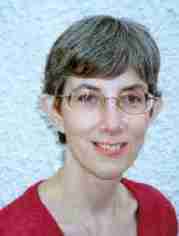 Hi everyone. I’m an urban Canadian writer. I moved to Britain more than a quarter of a century ago and gradually downsized until I’m now settled on a farm in rural Northern Ireland with my husband and an assortment of strong willed animals.
Hi everyone. I’m an urban Canadian writer. I moved to Britain more than a quarter of a century ago and gradually downsized until I’m now settled on a farm in rural Northern Ireland with my husband and an assortment of strong willed animals.
I write historical and contemporary fiction, often with an Irish connection. My current series The Yankee Years is a collection of Short Reads and novels set in World War II Northern Ireland. After the Allied troops arrived in this outlying part of Great Britain, life there would never be the same again. The series weaves tales of the people and the era. My previous writing includes a short story collection, Dancing Shadows, Tramping Hooves and an historical novel, Hitler and Mars Bars. Online I lurk at www.dianneascroft.com.
Did you read much as a child? Are you an avid reader now? Do you prefer books in your own genre or are you happy to explore others?
I’m an only child and my mother and grandfather were voracious readers so I learned to love reading early. I have happy memories of reading, sprawled in a Muskoka chair (a big wooden lounge chair) in our back garden during the summer holidays. I never lost my love of reading and still squeeze in a few minutes with a book every chance I get. There is rarely a day that I don’t spend some time reading for pleasure.
I read a wide variety of fiction. I especially enjoy historical fiction set in the nineteenth and twentieth centuries, and contemporary women’s fiction. I sometimes review books for blog tours and, as a result, read books outside my usual genre preferences. This has broadened my reading tastes and I’ve discovered that I really enjoy cosy mysteries, as well as crime novels and thrillers, if they aren’t too gory.
Are you self-published or traditionally published?
The Short Reads in my series, The Yankee Years, as well as my first historical novel and my collection of short stories, were all self-published. I’m currently working on a novel in The Yankee Years series. When it’s ready I intend to submit it to a traditional publisher for consideration. A traditional publisher has the contacts to introduce the book to a wider audience than I can reach so I would like to try this publishing method. But if I don’t find a publisher that thinks the book fits their market, I will be happy to self-publish this one too. I really enjoy being involved in the whole process and watching the project come together.
Which genre do you write in and why?
I write historical fiction and contemporary women’s fiction, and my work includes short stories and novels. Recently I’ve been concentrating on The Yankee Years, my historical fiction series set in Second World War Northern Ireland.
I like to tell stories sparked by interesting items that catch my attention and I’ve found inspiration in a many different places, hence my wanderings between historical and contemporary writing. My current series was inspired by the area where I live in County Fermanagh, Northern Ireland. The county has a rich and varied wartime history and, after I moved to the area more than a decade ago and learned about this history, I became fascinated by it. During the Second World War army camps and flying boat bases sprung up throughout the county, and approximately a quarter of the population were military personnel. It must have been so different from the quiet rural area that I know. I started rooting in books, original newspapers and personal accounts to learn about the era, and many of the ideas for my stories were sparked by snippets of information I stumbled across during my research.
Who has been the biggest influence on your writing?
I’m not really sure who has been the biggest influence on my writing but Irish author Jennifer Johnston’s Shadows On My Skin made a huge impact on me when it was first released in the late 1970s. Her ability to breathe life into characters and unveil a story in an understated way, as well as her skilful use of language, are wonderful skills that I aspire to emulate. I also admire Diana Gabaldon’s storytelling skill and her ability to interweave stories that unfold over several books. Both authors have taught me valuable lessons.
Has your country of origin/culture influenced your writing?
Although my stories are set in Northern Ireland, the country where I’ve lived for more than a quarter of a century, I’m sure Canada, my country of origin, influences the way I view my adopted home. On one hand, I hesitate to tackle writing about a society very different from the one I grew up in. It is difficult to capture the nuances of life in this complex society where the tensions between the communities stretch back well before the Second World War and influence many aspects of life. On the other hand, viewing the society as an outsider gives me unique insights that I can use to convey the place and the people to my readers.
What part of the writing process do you find most difficult? How do you overcome it?
Probably the most difficult aspect of the process for me is deciding what the theme of the story is and how the plot has to develop to reflect this. I spend time thinking about a new story and jot down my ideas before I begin to construct the plot. Once I have a list of ideas and information about the characters and the events in the story, I try to pull them together into a coherent plot. I then check to be sure the story flows in a believable way and each character’s actions and the reasons behind them make sense. When I begin writing the story I frequently refer back to my plot outline to be sure it is still on course.
Do you have a favourite time of day to write?
I like to write early in the morning. I’m always the first one up each morning so the house is quiet and I can write without any distractions, other than the cats clamouring for their breakfast. In this atmosphere it’s easy to gather my thoughts and put them on paper before my mind gets filled with the other tasks that I have to tackle that day.
What is the best thing about being an author? And the flipside – what is the worst?
I love conjuring up ideas and scribbling down the stories that flow from them. When a story is finally completed, it’s exciting to see the finished work. The hardest or worst part is the slog in the middle when you must revise your original draft, more than once, so that it conforms to the wonderful idea you started with and turns into the book you imagined when you started writing.
Is social media an essential chore or something you enjoy? Which forum do you prefer?
I enjoy meeting readers and other writers on social media. Socially and professionally, it’s a great place to be. Facebook is where you will find me most often. Finding enough free time to spend on social media is often a problem for me so, although I have a Twitter account, I don’t pop in there as often as I do to Facebook. I’m not on Pinterest or Instagram either for the same reason. A writer friend and I founded a Facebook group called The Second World War Club to bring readers and writers of wartime fiction together (we have expanded it to include World War I fiction too). In the group I enjoy working with other writers to help each other with our writing projects and chatting with readers about wartime novels. It’s lively and fun and I learn so much from my fellow members. There are several other Facebook groups I’m also active in. I just need more hours in the day to spend all the time I’d like to online.
If you weren’t an author, what would you be up to?
Since writing isn’t my fulltime job it isn’t really an either/or choice. Throughout my writing life I’ve worked in administration jobs so I haven’t given up another career to write. I have to fit the writing in around everything else.
History has always fascinated me and I love to research so, if I weren’t writing, I might have put more time into delving deeper into my family tree. I did quite a bit of work on it about twenty years ago but have never had the time to go back to it after I started writing.
We live on a farm and I enjoy the outdoors so when I’m not writing, I go for long walks and also spend time with our animals. If I weren’t writing, I would spend more of my free time outdoors. Maybe I should get something like Dragon software and dictate my stories while I’m walking.
It’s the last day and the earth is facing oblivion – what book would you read?
I don’t think I could pin it down to one book, but if I knew that it was the end and there was nothing I could do about it, I might want to find something I could lose myself in for those last few hours. Two authors who would do that for me immediately spring to mind. Although their writing styles are very different, both create vivid, memorable characters and settings that nearly jump off the page. They also have the ability to tell gripping stories. So my choices would be Diana Gabaldon (Outlander series) or M C Scott (Boudica or Rome series).
Please tell us what you are working on at the moment.
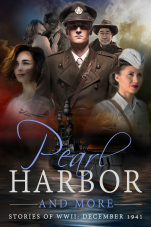 My current series, The Yankee Years, is a collection of novels and Short Reads set in World War II Northern Ireland. After the Allied troops arrived in this outlying part of Great Britain,
My current series, The Yankee Years, is a collection of novels and Short Reads set in World War II Northern Ireland. After the Allied troops arrived in this outlying part of Great Britain, 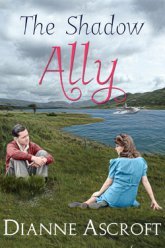 life there would never be the same again. The series weaves tales of the people and the era. I have released Books 1, The Shadow Ally, and 3, Keeping Her Pledge, in the series, and will release Book 2, Acts of Sabotage, in late July. All three of these stories are Short Reads or Book Blasts as James Patterson describes short stories. I’m also working on a novel, An Elusive Enemy, and other Short Reads for the series. One of the new Short Reads in the series will be included in Pearl Harbor and More, a collection of short stories set in December 1941 by ten authors who write wartime fiction. Pearl Harbor and More is a limited edition ebook which will be released at the beginning of November 2016 and available on Amazon until January 2017.
life there would never be the same again. The series weaves tales of the people and the era. I have released Books 1, The Shadow Ally, and 3, Keeping Her Pledge, in the series, and will release Book 2, Acts of Sabotage, in late July. All three of these stories are Short Reads or Book Blasts as James Patterson describes short stories. I’m also working on a novel, An Elusive Enemy, and other Short Reads for the series. One of the new Short Reads in the series will be included in Pearl Harbor and More, a collection of short stories set in December 1941 by ten authors who write wartime fiction. Pearl Harbor and More is a limited edition ebook which will be released at the beginning of November 2016 and available on Amazon until January 2017.
If you would like to know more about Dianne and her work, check out the links below:


A Conversation with author Dianne Ascroft
Today in the Library I am delighted to host author Dianne Ascroft, who has dropped in to say hello and to share some insights into her life as an author.
You are very welcome, Dianne, please introduce yourself:
 Hi everyone. I’m an urban Canadian writer. I moved to Britain more than a quarter of a century ago and gradually downsized until I’m now settled on a farm in rural Northern Ireland with my husband and an assortment of strong willed animals.
Hi everyone. I’m an urban Canadian writer. I moved to Britain more than a quarter of a century ago and gradually downsized until I’m now settled on a farm in rural Northern Ireland with my husband and an assortment of strong willed animals.
I write historical and contemporary fiction, often with an Irish connection. My current series The Yankee Years is a collection of Short Reads and novels set in World War II Northern Ireland. After the Allied troops arrived in this outlying part of Great Britain, life there would never be the same again. The series weaves tales of the people and the era. My previous writing includes a short story collection, Dancing Shadows, Tramping Hooves and an historical novel, Hitler and Mars Bars. Online I lurk at www.dianneascroft.com.
Did you read much as a child? Are you an avid reader now? Do you prefer books in your own genre or are you happy to explore others?
I’m an only child and my mother and grandfather were voracious readers so I learned to love reading early. I have happy memories of reading, sprawled in a Muskoka chair (a big wooden lounge chair) in our back garden during the summer holidays. I never lost my love of reading and still squeeze in a few minutes with a book every chance I get. There is rarely a day that I don’t spend some time reading for pleasure.
I read a wide variety of fiction. I especially enjoy historical fiction set in the nineteenth and twentieth centuries, and contemporary women’s fiction. I sometimes review books for blog tours and, as a result, read books outside my usual genre preferences. This has broadened my reading tastes and I’ve discovered that I really enjoy cosy mysteries, as well as crime novels and thrillers, if they aren’t too gory.
Are you self-published or traditionally published?
The Short Reads in my series, The Yankee Years, as well as my first historical novel and my collection of short stories, were all self-published. I’m currently working on a novel in The Yankee Years series. When it’s ready I intend to submit it to a traditional publisher for consideration. A traditional publisher has the contacts to introduce the book to a wider audience than I can reach so I would like to try this publishing method. But if I don’t find a publisher that thinks the book fits their market, I will be happy to self-publish this one too. I really enjoy being involved in the whole process and watching the project come together.
Which genre do you write in and why?
I write historical fiction and contemporary women’s fiction, and my work includes short stories and novels. Recently I’ve been concentrating on The Yankee Years, my historical fiction series set in Second World War Northern Ireland.
I like to tell stories sparked by interesting items that catch my attention and I’ve found inspiration in a many different places, hence my wanderings between historical and contemporary writing. My current series was inspired by the area where I live in County Fermanagh, Northern Ireland. The county has a rich and varied wartime history and, after I moved to the area more than a decade ago and learned about this history, I became fascinated by it. During the Second World War army camps and flying boat bases sprung up throughout the county, and approximately a quarter of the population were military personnel. It must have been so different from the quiet rural area that I know. I started rooting in books, original newspapers and personal accounts to learn about the era, and many of the ideas for my stories were sparked by snippets of information I stumbled across during my research.
Who has been the biggest influence on your writing?
I’m not really sure who has been the biggest influence on my writing but Irish author Jennifer Johnston’s Shadows On My Skin made a huge impact on me when it was first released in the late 1970s. Her ability to breathe life into characters and unveil a story in an understated way, as well as her skilful use of language, are wonderful skills that I aspire to emulate. I also admire Diana Gabaldon’s storytelling skill and her ability to interweave stories that unfold over several books. Both authors have taught me valuable lessons.
Has your country of origin/culture influenced your writing?
Although my stories are set in Northern Ireland, the country where I’ve lived for more than a quarter of a century, I’m sure Canada, my country of origin, influences the way I view my adopted home. On one hand, I hesitate to tackle writing about a society very different from the one I grew up in. It is difficult to capture the nuances of life in this complex society where the tensions between the communities stretch back well before the Second World War and influence many aspects of life. On the other hand, viewing the society as an outsider gives me unique insights that I can use to convey the place and the people to my readers.
What part of the writing process do you find most difficult? How do you overcome it?
Probably the most difficult aspect of the process for me is deciding what the theme of the story is and how the plot has to develop to reflect this. I spend time thinking about a new story and jot down my ideas before I begin to construct the plot. Once I have a list of ideas and information about the characters and the events in the story, I try to pull them together into a coherent plot. I then check to be sure the story flows in a believable way and each character’s actions and the reasons behind them make sense. When I begin writing the story I frequently refer back to my plot outline to be sure it is still on course.
Do you have a favourite time of day to write?
I like to write early in the morning. I’m always the first one up each morning so the house is quiet and I can write without any distractions, other than the cats clamouring for their breakfast. In this atmosphere it’s easy to gather my thoughts and put them on paper before my mind gets filled with the other tasks that I have to tackle that day.
What is the best thing about being an author? And the flipside – what is the worst?
I love conjuring up ideas and scribbling down the stories that flow from them. When a story is finally completed, it’s exciting to see the finished work. The hardest or worst part is the slog in the middle when you must revise your original draft, more than once, so that it conforms to the wonderful idea you started with and turns into the book you imagined when you started writing.
Is social media an essential chore or something you enjoy? Which forum do you prefer?
I enjoy meeting readers and other writers on social media. Socially and professionally, it’s a great place to be. Facebook is where you will find me most often. Finding enough free time to spend on social media is often a problem for me so, although I have a Twitter account, I don’t pop in there as often as I do to Facebook. I’m not on Pinterest or Instagram either for the same reason. A writer friend and I founded a Facebook group called The Second World War Club to bring readers and writers of wartime fiction together (we have expanded it to include World War I fiction too). In the group I enjoy working with other writers to help each other with our writing projects and chatting with readers about wartime novels. It’s lively and fun and I learn so much from my fellow members. There are several other Facebook groups I’m also active in. I just need more hours in the day to spend all the time I’d like to online.
If you weren’t an author, what would you be up to?
Since writing isn’t my fulltime job it isn’t really an either/or choice. Throughout my writing life I’ve worked in administration jobs so I haven’t given up another career to write. I have to fit the writing in around everything else.
History has always fascinated me and I love to research so, if I weren’t writing, I might have put more time into delving deeper into my family tree. I did quite a bit of work on it about twenty years ago but have never had the time to go back to it after I started writing.
We live on a farm and I enjoy the outdoors so when I’m not writing, I go for long walks and also spend time with our animals. If I weren’t writing, I would spend more of my free time outdoors. Maybe I should get something like Dragon software and dictate my stories while I’m walking.
It’s the last day and the earth is facing oblivion – what book would you read?
I don’t think I could pin it down to one book, but if I knew that it was the end and there was nothing I could do about it, I might want to find something I could lose myself in for those last few hours. Two authors who would do that for me immediately spring to mind. Although their writing styles are very different, both create vivid, memorable characters and settings that nearly jump off the page. They also have the ability to tell gripping stories. So my choices would be Diana Gabaldon (Outlander series) or M C Scott (Boudica or Rome series).
Please tell us what you are working on at the moment.
 My current series, The Yankee Years, is a collection of novels and Short Reads set in World War II Northern Ireland. After the Allied troops arrived in this outlying part of Great Britain,
My current series, The Yankee Years, is a collection of novels and Short Reads set in World War II Northern Ireland. After the Allied troops arrived in this outlying part of Great Britain,  life there would never be the same again. The series weaves tales of the people and the era. I have released Books 1, The Shadow Ally, and 3, Keeping Her Pledge, in the series, and will release Book 2, Acts of Sabotage, in late July. All three of these stories are Short Reads or Book Blasts as James Patterson describes short stories. I’m also working on a novel, An Elusive Enemy, and other Short Reads for the series. One of the new Short Reads in the series will be included in Pearl Harbor and More, a collection of short stories set in December 1941 by ten authors who write wartime fiction. Pearl Harbor and More is a limited edition ebook which will be released at the beginning of November 2016 and available on Amazon until January 2017.
life there would never be the same again. The series weaves tales of the people and the era. I have released Books 1, The Shadow Ally, and 3, Keeping Her Pledge, in the series, and will release Book 2, Acts of Sabotage, in late July. All three of these stories are Short Reads or Book Blasts as James Patterson describes short stories. I’m also working on a novel, An Elusive Enemy, and other Short Reads for the series. One of the new Short Reads in the series will be included in Pearl Harbor and More, a collection of short stories set in December 1941 by ten authors who write wartime fiction. Pearl Harbor and More is a limited edition ebook which will be released at the beginning of November 2016 and available on Amazon until January 2017.
If you would like to know more about Dianne and her work, check out the links below:


July 24, 2016
Victorian Murder: The ‘Barnes Mystery’
The terrible crime at Richmond at last,
On Catherine Webster now has been cast,
Tried and found guilty she is sentenced to die.
From the strong hand of justice she cannot fly.
She has tried all excuses but of no avail,
About this and murder she’s told many tales,
She has tried to throw blame on others as well,
But with all her cunning at last she has fell.
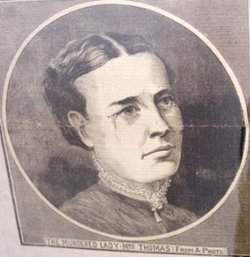
Julia Martha Thomas
One of the most notorious crimes of the late Victorian era in Britain was the murder of Julia Martha Thomas by her Irish maid, Kate Webster in March 1879. A widow, Julia Thomas lived at 2 Mayfield Cottages on Park Road in Richmond. It was a quiet and respectable area. A small, well-dressed lady of about fifty, Julia was said to 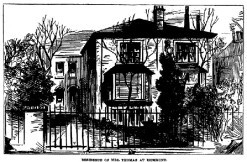 have had an excitable temperament and was regarded by many as eccentric. She was not particularly wealthy, but she always dressed up and wore jewellery to give the impression of prosperity. Her employment of a live-in maid was more to do with status than practicality. However, she had a reputation for being a harsh employer and she had difficulty finding and retaining servants.
have had an excitable temperament and was regarded by many as eccentric. She was not particularly wealthy, but she always dressed up and wore jewellery to give the impression of prosperity. Her employment of a live-in maid was more to do with status than practicality. However, she had a reputation for being a harsh employer and she had difficulty finding and retaining servants.
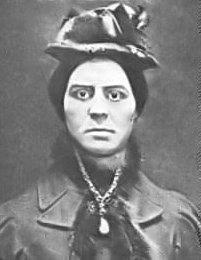
Kate Webster
Kate Webster was born as Kate Lawler in County Wexford, Ireland, around 1849. She was said to be “a tall, strongly-made woman of about 5 feet 5 inches in height with sallow and much freckled complexion and large and prominent teeth.” Much of her early life is unclear but she claimed to have been married to a sea captain called Webster by whom she had four children, all of whom died, as did her husband, within a short time of each other. She was imprisoned for theft in Wexford in December 1864, when she was only about 15 years old. She moved to England in 1867 and fell into a life of crime, being frequently imprisoned for robbery. However, she was recommended as a maid to Julia Thomas by someone who had employed her temporarily. Julia engaged her immediately without checking out her character or past.
Their relationship rapidly deteriorated with Julia disliking the quality of Kate Webster’s work. Kate said of Julia Thomas: “At first I thought her a nice old lady … but I found her very trying, and she used to do many things to annoy me during my work. When I had finished my work in my rooms, she used to go over it again after me, and point out places where she said I did not clean, showing evidence of a nasty spirit towards me.” The situation reached a crisis point and it was arranged that Kate Webster would leave Julia’s service on 28th February. Julia recorded her decision in what was to be her last diary entry: “Gave Katherine warning to leave.”
But Kate persuaded her employer to give her a few days grace until Sunday 2nd March. She had Sunday afternoons off as a half-day and was expected to return in time to help Julia prepare for evening service. But Webster returned late, delaying Julia’s departure. The two women argued and several members of the congregation later reported that Julia had appeared “very agitated” on arriving at the church. Julia returned home and confronted Webster. According to Webster’s eventual confession:
“Mrs. Thomas came in and went upstairs. I went up after her, and we had an argument, which ripened into a quarrel, and in the height of my anger and rage I threw her from the top of the stairs to the ground floor. She had a heavy fall, and I became agitated at what had occurred, lost all control of myself, and, to prevent her screaming and getting me into trouble, I caught her by the throat, and in the struggle she was choked, and I threw her on the floor.”
The neighbours heard a single thump like that of a chair falling over but paid no heed to it at t he time. Next door, Webster began disposing of the body by dismembering it and boiling it in the laundry copper and burning the bones in the hearth. The neighbours later said that they had noticed an unusual and unpleasant smell. However, the activity at 2 Mayfield Cottages did not seem to be out of the ordinary, as Monday was traditionally wash day. Over the next couple of days Webster continued to clean the house and Thomas’ clothes and put on a show of normality for people who called. Behind the scenes she was putting Thomas’ dismembered remains into a black Gladstone bag and a wooden bonnet-box. These were disposed of in the Thames. She was unable to fit the murdered woman’s head and one of the feet into the containers and disposed of them separately, throwing the foot onto a rubbish heap in Twickenham. The head was buried under the Hole in the Wall pub’s stables a short distance from Julia’s’ house, where it was found 131 years later.
he time. Next door, Webster began disposing of the body by dismembering it and boiling it in the laundry copper and burning the bones in the hearth. The neighbours later said that they had noticed an unusual and unpleasant smell. However, the activity at 2 Mayfield Cottages did not seem to be out of the ordinary, as Monday was traditionally wash day. Over the next couple of days Webster continued to clean the house and Thomas’ clothes and put on a show of normality for people who called. Behind the scenes she was putting Thomas’ dismembered remains into a black Gladstone bag and a wooden bonnet-box. These were disposed of in the Thames. She was unable to fit the murdered woman’s head and one of the feet into the containers and disposed of them separately, throwing the foot onto a rubbish heap in Twickenham. The head was buried under the Hole in the Wall pub’s stables a short distance from Julia’s’ house, where it was found 131 years later.
However, the next day, the box was found washed up in shallow water next to the river bank about a mile downstream. The discovery was immediately reported to the police. Around the same time, the foot and ankle were also found. Although it was clear that all of the remains belonged to the same corpse, there was nothing to connect them and no means to identify the remains. The doctor who examined the body parts erroneously attributed them to “a young person with very dark hair”. An inquest returned an open verdict and the unidentified remains were laid to rest in Barnes Cemetery on 19 March. The newspapers dubbed the unexplained murder the “Barnes Mystery”, amid speculation that the body had been used for dissection and anatomical study.
Webster continued to live at 2 Mayfield Cottages while posing as Julia Thomas, wearing her late employer’s clothes and dealing with tradesmen under her newly assumed identity. On 9 March she reached an agreement with John Church, a local publican, to sell Thomas’ furniture and other goods. By the time the removal vans arrived on 18 March, the neighbours were becoming increasingly suspicious as they had not seen Julia for nearly two weeks. Her next-door neighbour, Miss Ives, asked the deliverymen who had ordered the goods removed. They replied “Mrs. Thomas” and indicated Webster. Realising that she had been exposed, Webster fled. The police were called in and searched 2 Mayfield Cottages. There they discovered blood stains, burned finger-bones in the hearth and fatty deposits behind the copper, as well as a letter left by Webster giving her home address in Ireland. They immediately put out a “wanted” notice giving a description of Webster.
Scotland Yard detectives soon discovered that Webster had fled back to Ireland. The head constable of the Royal Irish Constabulary (RIC) in Wexford realised that the woman being sought by Scotland Yard was the same person whom his force had arrested 14 years previously for larceny. The RIC were able to trace her to her uncle’s farm near Enniscorthy and arrested her there on 29 March. She was escorted back to England to stand trial.
The murder caused a sensation on both sides of the Irish Sea. When the news broke, many people travelled to Richmond to look at Mayfield Cottages. The crime was just as notorious in Ireland; as Webster travelled under arrest from Enniscorthy to Dublin, crowds gathered to gawk and jeer at her at nearly every station between the two locations. The pre-trial magistrates’ hearings were attended by many. Webster went on trial at the Old Bailey on 2 July 1879. The prosecution was led by the Solicitor General, Sir Hardinge Giffard. Webster was defended by a prominent London barrister, Warner Sleigh, and the case was presided over by Mr. Justice Denman. The trial drew intense interest from all levels of society; on the fourth day, the Crown Prince of Sweden – the future King Gustaf V – turned up to watch the proceedings.
Over the course of six days, the court heard a succession of witnesses piecing together the complicated story of how Thomas had met her death. Webster had attempted before the t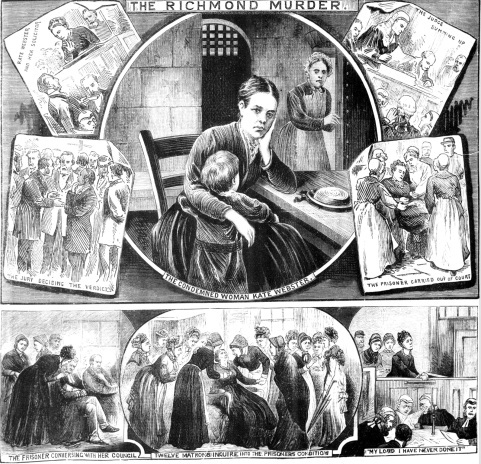 rial to implicate the publican John Church and her former neighbour Porter, but both men had solid alibis and were cleared of any involvement in the murder. She pleaded not guilty and her defence sought to emphasise the circumstantial nature of the evidence and highlighted her devotion to her son as a reason why she could not have been capable of the murder. However, Webster’s public unpopularity, impassive demeanour and scanty defence counted strongly against her. A particularly damning piece of evidence came from a bonnetmaker named Maria Durden who told the court that Webster had visited her a week before the murder and had said that she was going to Birmingham to sell some property, jewellery and a house that her aunt had left her. The jury interpreted this as a sign that Webster had premeditated the murder and convicted her after deliberating for about an hour and a quarter.
rial to implicate the publican John Church and her former neighbour Porter, but both men had solid alibis and were cleared of any involvement in the murder. She pleaded not guilty and her defence sought to emphasise the circumstantial nature of the evidence and highlighted her devotion to her son as a reason why she could not have been capable of the murder. However, Webster’s public unpopularity, impassive demeanour and scanty defence counted strongly against her. A particularly damning piece of evidence came from a bonnetmaker named Maria Durden who told the court that Webster had visited her a week before the murder and had said that she was going to Birmingham to sell some property, jewellery and a house that her aunt had left her. The jury interpreted this as a sign that Webster had premeditated the murder and convicted her after deliberating for about an hour and a quarter.
Shortly after the jury returned its verdict and just before the judge was about to pass sentence, Webster was asked if there was any reason why sentence of death should not be passed upon her. She pleaded that she was pregnant in an apparent bid to avoid the death penalty. The Law Times reported that “upon this a scene of uncertainty, if not of confusion, ensued, certainly not altogether in harmony with the solemnity of the occasion.” The judge commented that “after thirty-two years in the profession, he was never at an inquiry of this sort.” Eventually the Clerk of Assizes suggested using the archaic mechanism of a jury of matrons, constituted from a selection of the women attending the court, to rule upon the question of whether Webster was “with quick child”. Twelve women were sworn in along with a surgeon named Bond, and they accompanied Webster to a private room for an examination that only took a couple of minutes. They returned a verdict that Webster was not “quick with child.”
Before she was executed, Webster made two statements. The first was false in which she tried to implicate two others; the second in which she took full responsibility. She was hanged the following day at Wandsworth Prison at 9 am, where the hangman, William Marwood, used his newly developed “long drop” technique to cause instantaneous death. She was buried in an unmarked grave in one of the prison’s exercise yards. The crowd waiting outside cheered as a black flag was raised over the prison walls, signifying that the death sentence had been carried out.
The trial was a sensation and was widely reported in the press, both in Ireland and Britain. Within weeks of her arrest, and well before she had gone to trial, Madame Tussaud’s created a wax effigy of her and put it on display for those who wished to see the “Richmond Murderess”. 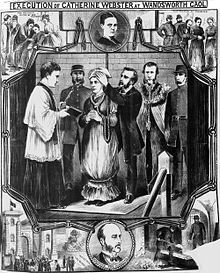 It remained on display well into the twentieth century. Within days of her execution an enterprising publisher rushed into print a souvenir booklet for the price of a penny, “The Life, Trial and Execution of Kate Webster. The Illustrated Police News published a souvenir cover depicting an artist’s impression of the day of the execution. The case was also commemorated, while it was still ongoing, by street ballads—musical narratives set to the tune of popular songs.
It remained on display well into the twentieth century. Within days of her execution an enterprising publisher rushed into print a souvenir booklet for the price of a penny, “The Life, Trial and Execution of Kate Webster. The Illustrated Police News published a souvenir cover depicting an artist’s impression of the day of the execution. The case was also commemorated, while it was still ongoing, by street ballads—musical narratives set to the tune of popular songs.
Webster herself was characterised as malicious, reckless and wilfully evil. Servants were expected to be deferential; her act of extreme violence towards her employer was deeply disquieting. At the time, about 40% of the female labour force was employed as domestic servants for a very wide range of society. Servants and employers lived and worked in close proximity, and the honesty and orderliness of servants was a constant cause of concern.
Another cause of revulsion against Webster was her attempt to impersonate her dead employer for two weeks, implying that middle-class identity amounted to little more than cultivating the right demeanour and having the appropriate clothes and possessions, whether or not they had been earned.
Perhaps most disturbingly for many Victorians, Webster was seen as having violated the expected norms of femininity. Victorian women were supposed to be moral, passive and physically weak. Webster was seen as quite the opposite and her appearance and behaviour were seen as key signs of her inherently criminal nature. Her behaviour in court and her sexual history also counted against her. Being Irish was a significant factor in the widespread revulsion felt towards Webster in Great Britain. The depiction of Webster as “hardly human” was of a piece with the public and judicial perceptions of the Irish as innately criminal.
In 1952, the naturalist David Attenborough and his wife Jane bought a house situated between the former Mayfield Cottages (which still stand today) and the Hole in the Wall pub. The pub closed in 2007 and fell into dereliction but was bought by Attenborough in 2009 to be redeveloped. On 22 October 2010, workmen carrying out excavation work at the rear of the old pub uncovered what turned out to be a woman’s skull. It was immediately speculated that 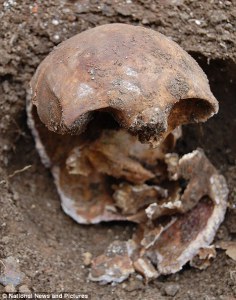 the skull was the missing head of Julia Martha Thomas, and the coroner asked Richmond police to carry out an investigation into the identity and circumstances of death of the skull’s owner. Carbon dating found that it was dated between 1650 and 1880, but it had been deposited on top of a layer of Victorian tiles. The skull had fracture marks consistent with Webster’s account of throwing Thomas down the stairs, and it was found to have low collagen levels, consistent with it being boiled. In July 2011, the coroner concluded that the skull was indeed that of Thomas. DNA testing was not possible as she had died childless and no relatives could be traced; in addition, there was no record of where the rest of her body had been buried.
the skull was the missing head of Julia Martha Thomas, and the coroner asked Richmond police to carry out an investigation into the identity and circumstances of death of the skull’s owner. Carbon dating found that it was dated between 1650 and 1880, but it had been deposited on top of a layer of Victorian tiles. The skull had fracture marks consistent with Webster’s account of throwing Thomas down the stairs, and it was found to have low collagen levels, consistent with it being boiled. In July 2011, the coroner concluded that the skull was indeed that of Thomas. DNA testing was not possible as she had died childless and no relatives could be traced; in addition, there was no record of where the rest of her body had been buried.
The coroner recorded a verdict of unlawful killing, superseding the open verdict recorded in 1879. The cause of Thomas’s death was given as asphyxiation and a head injury. The police called the outcome, “a good example of how good old-fashioned detective work, historical records and technological advances came together to solve the Barnes Mystery.”


July 21, 2016
The 1880s in Fashionable Gowns: A Visual Guide to the Decade
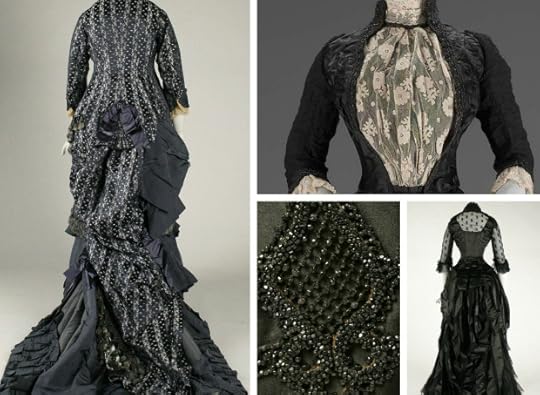 (Individual Images via Met Museum and MFA Boston)
(Individual Images via Met Museum and MFA Boston)
The 1880s ushered in an era of tailored, close-fitting gowns, some of which were almost masculine in appearance. These gowns exemplified women’s changing roles in society. No longer content to be flounced, ruffled, and beribboned drawing room ornaments, 1880s ladies were engaged in outdoor pursuits. Some had jobs, some participated in sports, and many were involved in the ongoing fight for women’s suffrage. This was the decade of Sherlock Holmes, Jack the Ripper, the Rational Dress Reform Movement, and the ready-made gown. This was also the decade when black evening dresses became fashionable–and not just for those in mourning.
View original post 3,376 more words


July 4, 2016
A Conversation with Author Ruth Frances Long
Today in the Library I am delighted to have award winning Irish author Ruth Frances Long, who has dropped in to say hello and to share some insights into her life as a busy author.
You are very welcome Ruth, would you like to tell us a little about yourself?
I write dark young adult fantasy, often about scary fairies, such as The Treachery of Beautiful Things, A Crack in Everything, A Hollow in the Hills and the forthcoming A Darkness at the End. (O’Brien Press, 2016). I also write fantasy and paranormal romance.
I live in Wicklow and work in a specialized library of rare, unusual & occasionally crazy books. But they don’t talk to me that often.
In 2015, I won the European Science Fiction Society Spirit of Dedication Award for Best Author of Children’s Science Fiction and Fantasy.
Did you read much as a child? Are you an avid reader now? Do you prefer books in your own genre or are you happy to explore others?
Absolutely. I devoured books as a child, spending hours in my local libraries. I got an adult ticket quite early on because I had read just about everything in the junior library. I was also lucky enough to have a superb second hand bookshop in my town where I picked up all sorts of unusual and interesting things. I’m still an avid reader but lack the time to read these days. I always feel I should be writing. I read quite widely, not just YA or fantasy. I’m very fond of crime and thrillers, and also of historical fiction. So long as the book is gripping I will read it. I love a page turner.
Are you self-published or traditionally published?
Currently I am traditionally published but I have self published in the past. I was originally published with an ebook first publisher, with the print following some months later. It was a great adventure and a super way to learn the ropes.
Which genre do you write in and why?
I primarily write Young Adult these days, although I’ve written romance and fantasy as well. I love the voice of Young Adult books. Most of the characters that pop into my head seem to belong there. The themes are so interesting and of universal interest. If we aren’t teens now, we were once. There’s hope and engagement in these characters, a desire to fight and change things. It’s exhilarating. The characters are larger than life, but very real. They leap off the page.
Who has been the biggest influence on your writing?
This is a very tough question because it hasn’t just been one person but a range of authors. Susan Cooper’s The Dark is Rising Sequence, and Alan Garner’s books have been really important to me. Add to that Tolkien, Stephen King, Neil Gaiman and Terry Pratchett. But probably the biggest influence of all was discovering the world of folklore and the way it interweaves itself into our lives. So it’s a concept rather than a person. It’s also something that all of these authors do so well. They are storytellers, and storytelling lies at the heart of a culture. It shapes how people think and act, highlights what is important to them and what they fear. That thought fascinates me and all my stories grow from some sort of folklorish element.
Has your country of origin/culture influenced your writing?
Very much so. I love Irish legends and folk tales and they have burrowed themselves deep in between the words I write. A Crack in Everything, A Hollow in the Hills and A Darkness at the End are intricately woven with Irish myths and legends. But I didn’t go with the great mythological sagas. I wanted to explore the idea of the everyday supernatural that exists in so much of Irish folklore. The Sídhe live beside us, under those hills just there. They’re very much a part of daily life and their stories are rooted in a specific landscape. I was interested in looking at that in a modern setting. I also loved the story of how Ireland was divided between the Sídhe and human beings. It was agreed that the island should be split in half but the humans cheated and used magic to divide it so the Sídhe were forced to live “underground”. And the wonderful Irish legend about the Sídhe being former angels who didn’t take a side in the war in heaven and were exiled rather than damned. There is so much in these stories and I still think I have only scratched the surface.
What part of the writing process do you find most difficult? How do you overcome it?
For me the hardest part is the initial writing. It’s that process of taking something that is a beautiful shining image in your mind and getting it down on the page/screen. You lose so much doing that, and the thing that ends up there isn’t as good. It has to be edited to make it shiny again. Keeping going is the hardest part. I make myself write a little every day in order to get there, promising myself I can fix it later. I have to turn off my internal editor or I would never get anything written. Finding the time to write can be a challenge. I have a job and a family, but it’s worth it in the end.
Do you have a favourite time of day to write?
I usually write in the evenings, not because it’s my favourite time but it’s the time when I have time. I curl up on the sofa and type/edit or take a notebook up to bed with me and write in bed. I also carry a notebook with me all the time and write whenever I get a moment.
What is the best thing about being an author? And the flipside – what is the worst?
The best is when someone gets your work – the moment of communication between writer and reader. It’s really magical. I adore it when someone tells me how much they love something I wrote, because I’ve done my job and done it well enough that that person loves my imaginary people.
The worst… paranoia, the fear, inability to write… actually none of these things are actually unique to being a writer, just to being a human being. But I believe writers and artists in general have a highly developed sense of empathy and sometimes that makes us all a bit prone to overthinking and worrying.
Is social media an essential chore or something you enjoy? Which forum do you prefer?
I quite enjoy social media. I have made a lot of friends through it. I work alone a lot of the time in both my day job and while writing so it’s a great source of company. The main thing to remember is that it’s a conversation, not a way of selling something. I really enjoy a number of forums, all for different things. I love Facebook for longer discussions, and Instagram for pictures. Pinterest is great for image boards and I make one for each WIP. But I think Twitter is still my favourite. It’s just busy all the time. And it’s amazing for big events (like the Eurovision, slightly obsessed).
If you weren’t an author, what would you be up to?
By day, I am a specialist librarian. So I would be that, only for more time.
It’s the last day and the earth is facing oblivion – what book would you read?
Good Omens by Terry Pratchett and Neil Gaiman. Although I’d try to speed read so I could read some more books as well. Only one?! That’s not fair.
June 5, 2016
A Conversation with Author Susan Appleyard
Today in the library we have author Susan Appleyard who has dropped by to share some insights into her life as an author. Susan is the author of : Queen of Trial and Sorrow, This Sun of York, The Relentless Queen and The First Plantagenet.
Hello Pam and everyone. Thanks for the opportunity to introduce myself and talk about my work.
I was born in England, which is where I learned my love of English history, and emigrated to Canada in the mid-seventies, so I am very much a Canadian but with a Yorkshire accent. I’m fortunate to be able to spend six months in Canada, with my 3 children and 6 grand-children, and six months in Mexi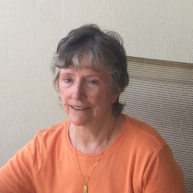 co with the sun and sea and margaritas on the beach. (No prizes for guessing which months are spent where.)
co with the sun and sea and margaritas on the beach. (No prizes for guessing which months are spent where.)
I had two books traditionally published, before my burgeoning career went into the toilet when my publisher sold out to another company and my agent went into furniture sales. For a time, I gave up trying to get published but I never stopped writing. It was little over a year ago that a friend suggested I try self-publishing, which I did, and I now have four books available on Amazon. As already stated, I adore English history and read any era, fiction and non-fiction, although my favourite period remains the fifteenth century. Three of my books are set in the period of the War of the Roses, and the fourth is about Henry II, a very interesting king.
For me one of the most difficult things about writing is maintaining my confidence. Most of us do our own editing more than once, trying to achieve perfection and make sure no little error slips through, even if we go on to have the work professionally edited. By the time I finish this process I begin to think words that once seemed like little gems of wit or wisdom now sound trite. I think it was the English painter Turner who said: I imagine mountains and paint molehills. That’s the way I feel when my book is finished.
I always write in the mornings when the brain is freshest – so I’ve heard. The best thing about being an author is putting myself in the life of another person, trying to imagine what they are sensing at a given time. This is particularly challenging and rewarding in historical fiction because the experiences are so far from my own. For example, I once wrote about a man who was crushed when an elephant fell on him. I’ve killed and been killed in many varied ways, and had so many love affairs… All without a twinge to my conscience. The worst thing about being an author is the feeling in my bottom when I get up after several hours of work!
If I was not an author, I would indulge my love of history by being an archaeologist.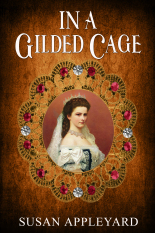
My work in progress is a departure for me as it is about the nineteenth century Empress Elisabeth of Austria, nicknamed Sisi. It’s in the editing stage and I’m excited about it. Titled In a Gilded Cage, I hope to publish this summer.
If you would like to know more about Susan and her work, please check out the links below:
Blog Facebook


June 4, 2016
A Conversation with Author Paul Kestell
Today in the Library we have Paul Kestell, who has dropped in to say hello and to share some insights into his life as an author.
You are very welcome, Paul, please introduce yourself:
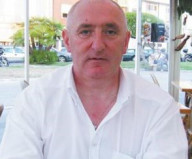 Hi, I started writing when I was very young … but I was shy and I didn’t really come out till my final years in secondary school, when I made the school magazine with a few stories in the flash fiction genre before it was ever invented. I started writing novels when I was forty-six after a sudden illness forced me to change almost everything in my life. I went to live in a small fishing village in West Cork …. where I wrote Viareggio, and Wood Point, both novels, and then two collections of novelettes called The Mad Marys of Dunworley and The West Cork Railway and Other Stories. My reviews have been very good but not good enough to tempt a mainstream publisher to take me on. So I continue to publish under my own imprint Black Cormorant Books, and my new title is ‘Nogginers,’ a series of twelve short stories set where I grew up in Sallynoggin.
Hi, I started writing when I was very young … but I was shy and I didn’t really come out till my final years in secondary school, when I made the school magazine with a few stories in the flash fiction genre before it was ever invented. I started writing novels when I was forty-six after a sudden illness forced me to change almost everything in my life. I went to live in a small fishing village in West Cork …. where I wrote Viareggio, and Wood Point, both novels, and then two collections of novelettes called The Mad Marys of Dunworley and The West Cork Railway and Other Stories. My reviews have been very good but not good enough to tempt a mainstream publisher to take me on. So I continue to publish under my own imprint Black Cormorant Books, and my new title is ‘Nogginers,’ a series of twelve short stories set where I grew up in Sallynoggin.
Did you read much as a child? Are you an avid reader now? Do you prefer books in your own genre or are you happy to explore others?
I love novels. A favourite is ‘The Lonely Passion of Judith Hearne,’ it was a good movie too. I tend to read when I am not writing which is never so I am lucky to read one or two novels a year.
Are you self-published or traditionally published?
I publish all through my own imprint Black Cormorant Books.
Which genre do you write in and why?
I didn’t know I was confined to a genre but my books are adult fiction not because of too much sex or violence, but my themes are very adult I hope.
Who has been the biggest influence on your writing?
James Joyce not because I have read all of his work or pretend to understand him but he taught me to inject passion into words.
Has your country of origin/culture influenced your writing?
Yes, very much. The wind blowing in neoliberalism has made me very angry. I fear greatly for my country.
What part of the writing process do you find most difficult? How do you overcome it?
Editing and I don’t like it as it fries my brain. Why do people seek such order?
Do you have a favourite time of day to write?
No. I write at different times of the day but I love writing at night when all else is asleep.
What is the best thing about being an author? And the flipside – what is the worst?
The best thing is when people say something kind about your work. The worst is when you realise that very few people have actually read what you painstakingly put together. Using my own imprint I find it almost impossible to get reviews. Books are like any other product – they need media support to become popular. The literary world is narrow, very middle-class and full of nepotism but hey, I am not bitter – not much.
Is social media an essential chore or something you enjoy? Which forum do you prefer?
I do Twitter and Facebook, but I use them to air my political views as much as to promote my books.
If you weren’t an author, what would you be up to?
I think I would be dead.
It’s the last day and the earth is facing oblivion – what book would you read?
Dubliners by James Joyce what a way to finish … reading The Dead.
Please tell us about your latest published work:
 Nogginers, a book of twelve short stories will be launched in the Irish Writers Centre, this Thursday.
Nogginers, a book of twelve short stories will be launched in the Irish Writers Centre, this Thursday.
The book brings us on a fictional journey through the writer’s early years and into adolescence, the spectre of manhood and responsibility though inevitable, is feared almost like death, thus we arrive at disaffected adulthood in stories like ‘Blood’.
The stories are full of humour but are tainted by the biting reality of growing up in a working class Corporation estate.
This barren world is brought to life in stories like ‘The Messenger Boy’ and ‘Workers’, intertwined with an innocence, and the power of childhood imagery and imagination.
There are some stark stories to tell as in ‘Hate Lessons,’ and ‘Corpus Christi,’ the writer enters our souls percutaneously but he also entertains us with the funny ‘The Posh Party,’ and ‘Weekly with Mrs Tims.’
It is no doubt that he has scrubbed his own soul clean when you read ‘Visits,’ and ‘Davids Room,’ but for sheer angst ‘Betty Drew,’ will be hard to beat but perhaps the earlier innocence of ‘Frogs,’ may compete with the final story ‘Leaving,’ to leave us with a true reflection on working class life during this period.
Paul’s book is available now on Amazon.
If you would like to know more about Paul and his work, you can follow his writing adventures on Facebook or Twitter.
May 29, 2016
A Conversation with Author Virginia Heath
Today in the Library we have Virginia Heath, who has dropped in to say hello and to share some insights into their life as an author.
You are very welcome, Virginia, please introduce yourself:
 I was born just outside of London and still live on the outskirts of the city. I am married to a wonderful man and have a daughter and a son, both in their late teens. For the last decade I have been teaching history to teenagers in a British secondary school. I loved teaching, but in the back of my mind I had always wanted to be a writer. When I hit the age of 46, I realised that if I didn’t do it soon then I probably would never do it at all. So I quit full-time teaching at the start of 2014 and worked part-time. On my days off I wrote. Then finally, last summer I gave up teaching for good and now only write.
I was born just outside of London and still live on the outskirts of the city. I am married to a wonderful man and have a daughter and a son, both in their late teens. For the last decade I have been teaching history to teenagers in a British secondary school. I loved teaching, but in the back of my mind I had always wanted to be a writer. When I hit the age of 46, I realised that if I didn’t do it soon then I probably would never do it at all. So I quit full-time teaching at the start of 2014 and worked part-time. On my days off I wrote. Then finally, last summer I gave up teaching for good and now only write.
Did you read much as a child? Are you an avid reader now? Do you prefer books in your own genre or are you happy to explore others?
I have always been an avid reader. There is just something about reading a book that is so immersive and I they are the perfect way to de-stress. I read all manner of books, from serious non-fiction to crime, but romance has always been my favourite genre. I have only discovered the joy of historical romances in the last five years, which is ironic considering I now write them.
Are you self-published or traditionally published?
I am thrilled to be published by Harlequin Mills & Boon. I have read hundreds of their books over the years and never imagined that I would become one of their authors.
Which genre do you write in and why?
My background as a historian lends itself perfectly to historical romances. At the moment I am writing Regencies. It is such a fascinating time period and a time of great technological and scientific change. However, the great divide that existed between the rich and the poor created huge political tensions which are rarely mentioned in Regency romances. Of course, there is also the turbulent wars between England and Napoleon as well as the continued animosity between the British and the former American colonies. It provides such a wealth of things to write about that I am spoiled for choice. However, I am not ready to pigeon-hole myself as solely a Regency author. I want to write in other time periods too and have a few ideas for something contemporary, perhaps involving a teacher…
Who has been the biggest influence on your writing?
It’s hard to narrow it down to one particular person, but I suppose the legendary Nora Roberts has to be up there. I love her romantic suspense stories in particular but almost everything she writes is brilliant. Having said that, I also love Dickens. He has a really funny way with words once you get into the language. And, of course, I love Jane Austen. Mr Darcy is the perfect hero. Flawed but honourable. I also adore Julia Quinn, Julie Anne long, Sarah Maclean and Tessa Dare. I like the modern, witty twist they put on regency romances and their books have definitely influenced my own writing.
Has your country of origin/culture influenced your writing?
I have always lived such a short distance away from London, therefore I feel comfortable writing about it. I love to travel though, and would really like to write some books set in America or the Caribbean during the early 19th century.
What part of the writing process do you find most difficult? How do you overcome it?
For me, it is the isolation. I am used to spending my days with a thousand kids in a school and all of the hullaballoo that goes along with it. Don’t get me wrong- I love the quiet and the lack of stress now but there are times when I just want to be around other humans! Fortunately, I have some good friends who I can lunch with or I visit my daughter at university. Weekends, I rarely write. I go off and have adventures with other human beings instead.
Do you have a favourite time of day to write?
Definitely the mornings. I am at my most productive between the hours of eight and noon. After that, the words do not flow quite as quickly. Writing after seven is forbidden- if I do, my brain will not shut down and I spend the night awake thinking about what to write next.
What is the best thing about being an author? And the flipside – what is the worst?
The best thing about being an author is being paid to be creative. I sit and think, plot and write about whatever I want to. How cool is that? The worst thing is the self-doubt that walks alongside all creativity. I will have a minor crisis of confidence every week and one major one about one third into every book! During that time, I convince myself that I cannot write, my words are rubbish and I will have to give it all up and get a proper job again.
Is social media an essential chore or something you enjoy? Which forum do you prefer?
Perhaps it will change, but it is definitely a chore and becomes a bigger one every day. I prefer Facebook to Twitter because it is less advertising, yet I believe that Twitter is probably the more useful of the two. I have just made my own website www.virginiaheathromance.com and I really love that because it is more me than the other platforms. I have made sure that people can contact me via a link, which is far more personal than the public forums and I can respond in kind.
If you weren’t an author, what would you be up to?
Probably still teaching and dreaming about writing a book someday during the never-ending round of afterschool meetings.
It’s the last day and the earth is facing oblivion – what book would you read?
If oblivion is nigh, then I think I would want to spend my final hours laughing, so I would choose The Moon’s a Balloon by David Niven. It is a hugely entertaining and hilarious autobiography which follows him from childhood to Hollywood.
Please tell us about your latest published work.
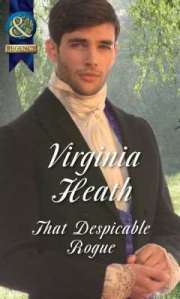 My debut novel, That Despicable Rogue, was released this month. It is about Lady Hannah Steers’ mission of revenge against a handsome, charming scoundrel, who has taken everything from her, including her beloved childhood home Barchester Hall. The loss of that house caused her brother to shoot himself and doomed Hannah to be exiled in the north, away from society.
My debut novel, That Despicable Rogue, was released this month. It is about Lady Hannah Steers’ mission of revenge against a handsome, charming scoundrel, who has taken everything from her, including her beloved childhood home Barchester Hall. The loss of that house caused her brother to shoot himself and doomed Hannah to be exiled in the north, away from society.
In order to expose him, Hannah dons a disguise and applies for the position of Ross Jameson’s housekeeper and goes to live with him back in the house that she loves. Except, once she is working for him, all of her well-laid plans go pear-shaped.
That Despicable Rogue is available in paperback or kindle, and is available on Amazon and other booksellers, or directly from the Harlequin Mills & Boon website.
There is a taster chapter on my website www.virginiaheathromance.com so that you can try before your buy. There you will also find details of my second book, Her Enemy at the Altar, which follows in August and is also available for pre-order Amazon
If you would like to know more about Virginia and her work please check out the links below:



